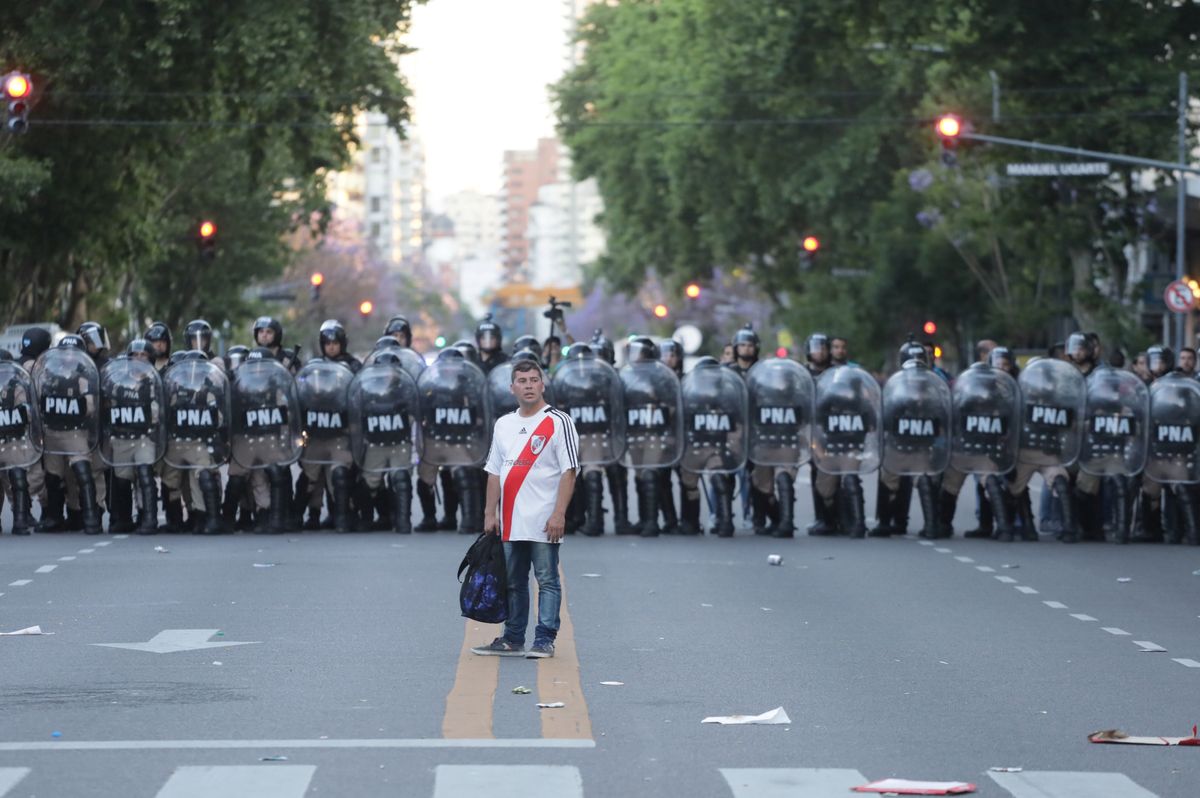It was supposed to be a triumphant moment—an opportunity to showcase Argentina's soccer prowess and to escape, if only momentarily, the gloom of a spiraling domestic economic situation. Scheduled for Saturday, the last match of Latin America's premier soccer finale, the Copa Libertadores, pitted two cross-town rivals from the capital Buenos Aires for the first time in the tournament's 58-year history.
But the match for the ages was not to be. It was suspended after fanatic supporters of River Plate, one of the competing teams, attacked a bus carrying members of the rival Boca Juniors club, hospitalizing numerous players. To avoid further violence, the final will now take place outside of Argentina.
The mishandling of security around the event, where violence was widely expected, comes at a delicate moment for Argentina and its president, Mauricio Macri.
A country at a crossroads. Elected in 2015, the business-friendly Mr. Macri swept into office on the promise to revitalize a struggling economy after decades of mismanagement by his far-left predecessors. Three years in, he's attempting a careful balancing act between his domestic and foreign audiences, amid an economic crisis that has seen Argentina fall into a deep recession.
Investors are watching carefully to see whether Mr. Macri has enough mettle to implement reforms while voters at home fear the pinch of further cuts to government programs that help them make ends meet.
Growing class divides? In his efforts, Mr. Macri, who hails from one of Argentina's wealthiest families, isn't helped by the fact that the rivalry between Boca Juniors and River Plate has distinct class undertones – with River drawing it support from the capital's wealthy suburbs and Boca it working-class neighborhoods. (In a twist, Mr. Macri was the president of Boca for over a decade before his election.)
The country's most famous footballer, Diego Maradona, seized on this line of criticism: "I hate violence, and what does it matter to Macri? He has been the son of millionaires all his life." The unusually ferocious clash between Boca Juniors and River Plate may be indicative of deepening class divisions and growing animus toward a wealthy president.
Mr. Macri's approval rating stands around 36 percent today, down about 30 percentage points over the past year.
Welcome to Buenos Aires. Suffering a setback at home, Mr. Macri is also preparing to welcome the leaders of the world's largest economies to Argentina for the annual G20 meeting this weekend. Macri intended to use the high-profile summit to reassure foreign leaders and investors that Argentina fundamentally remains a good bet. A toxic cocktail of sport and class rivalries has just made that a harder sell.


















